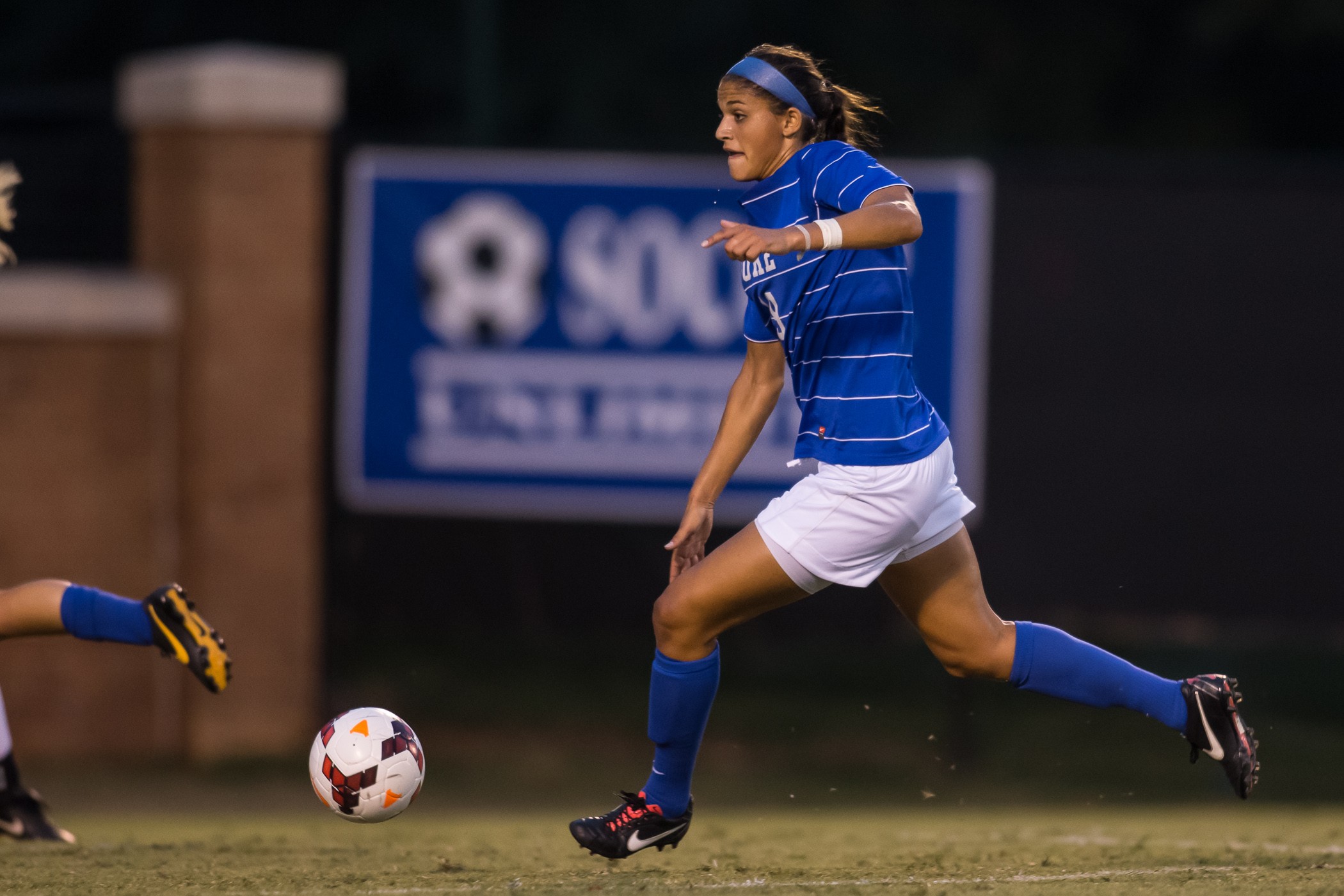Techne founder Yael Averbuch was among the vast number of young girls who always wanted to play her sport at the famed women’s soccer school, the University of North Carolina (UNC). Along the path to her decision on which college to attend, including the many routes that could have derailed her, there was one constant. It’s the same one at the heart of her company: preparation and homework.
There are many resources to guide one in the college soccer search, many aspects of the process to understand, and key steps to take. Coaches, the Internet and word of mouth are all helpful in the player’s college process. Below, however, are the key things that players, their coaches and families might not know, but that Averbuch personally learned along the way.
Be Proactive. There’s a common misconception that college coaches see players at youth tournaments, recruit them, and then players pick from that group of programs. That may be true for a select number of players, but that’s not necessarily the norm. Averbuch didn’t wait; she acted on her goal early. She first attended UNC girls’ soccer camp when she was 12 years old, and steadily continued to be seen by coach Anson Dorrance and his staff at various youth tournaments. She also personally reached out to them over the years to keep them updated on her progress as a player and to let them know where they could watch her play.
It’s important to remember, too, that even if players are not recruited, they can always walk onto a team. There have been players over the years who start as walk-ons and through determination and persistence end up as starters on their college teams!
Expect the Unexpected. Perhaps it seems like it was a straight shot for Averbuch. A foregone conclusion. But that simply wasn’t the case. From the 12-year-old who saw only Carolina Blue to the high school-age player, she changed her mind. She wasn’t so sure where she wanted to attend UNC, (or, at times, even if she wanted to go to college). She vacillated. So, she made a list of choices, and visited various colleges--an option open to all players. Here is why her research, and those visits, were so important.
Clearly Identify Your Priorities. The longer and harder a player looks, the more there is to decide. Big school or small? What Division and Conference? What course of study is of interest? Away from home or close by? A level of play just high enough, or a challenge of play that seems daunting? Will the player be a starter from day one or sit the bench--and how does the player feel about that? Does a player want to attend a school badly enough that they’re willing to work as hard as possible simply to make the team?
Be aware that in addition to being exciting and wonderful, college soccer has its challenges. Sports combined with academics can be stressful. It’s like having two full-time jobs, and on top of that, student-athletes still want some sort of downtime and social life. The workload and lifestyle can come as a shock to many players. So, priorities and choices should be established with that important understanding.
Watch and Learn. If a player can visit a school(s), it will go a long way in helping to learn the details that often go unconsidered when just focusing on the hopes and dreams. When players step onto campus, can they imagine themselves there? At practice and/or games, are they inspired when they watch the players? What is the culture and focus of the team? How does the coaching staff relate to the players? How do the players treat each other? Players should sit in on a team meeting if possible. They should listen and watch for the support and wisdom, but look for the laughter and ease among all the relationships. College soccer is often intense, so a balanced philosophy and environment is critical. Players should think of what they appreciate, and conversely, what they’d like to leave behind, about their club soccer team. They should also use that experience to assess their potential college choice. Also, they should realize that before they get to a school, and throughout the four years they are there, a lot can change about a program, including even the head coach.
Seek Out a Soccer Culture. At Techne, we believe in creating and enhancing a soccer culture. The love of the game is what makes it fun, and what can endure for a lifetime. To that end, it’s a good idea to check out alumni of the program(s) being considered. Are they playing, coaching, referring, fans, part of the soccer media, or somehow otherwise still involved in the game? That’s a sign that hopefully, no matter on what level, their college soccer experience was a positive one, and contributed to a long-lasting relationship with the game.
Give Yourself Plenty of Time to Explore and Decide. It’s rarely a “straight line” from hopes, dreams and plans to the slam-dunk choice. Once a choice is explored, or other choices appear on the horizon, there’s more to consider. Yael Averbuch went from the young girl with her eyes focused solely on UNC to believing that maybe she would be better off elsewhere. Then, she made one last visit to Chapel Hill, and what she saw solidified her original choice.
At UNC, she saw a group of players training with an intensity and commitment like nothing she had seen before. She immediately thought, “No team deserves to beat them.” They also clearly had a special camaraderie, and she knew after spending time and watching and listening to them, and the staff, that she had found a group of people that felt the same way about the game that she did. In the end, she realized that if she didn’t choose this program, she would always wonder: “what if?”
Many factors can make a player’s choice “the right” one for them. It won’t always be easily and readily apparent from the beginning, but be assured that if the effort is made to research, get to know the program, coaches and school, a player can make an informed choice. And nothing is irrevocable. If for some reason, the school doesn’t work out as one had hoped, it is not uncommon to move on to someplace else with a program that is better-suited to the player.
Accept the Unknown. Finally, however, players should let themselves accept a future of some unknowns. There will, no doubt, be unanticipated challenges. That’s part of college soccer and the personal growth process. Among the many successes and priceless friendships, Averbuch had her own challenges at UNC. But in addition to a wonderful four-year soccer experience, she developed a bond with her teammates, and a long list of life lessons, that are among the most valuable and enduring aspects of her playing career. She has said that it is not the victories or the championships she most cherishes, but what she experienced overall--notably what she learned about people, herself, and life.
Whatever the choice of schools, while it may be about soccer, it is also about four years of one’s life. While a soccer program can be an important aspect of a person’s experience, it is still only a part of a formative time defined by a vast array of experiences. In the same way that at Techne we encourage players to take charge of their own development, we believe players should be thorough and proactive while taking ownership over the college selection process.



